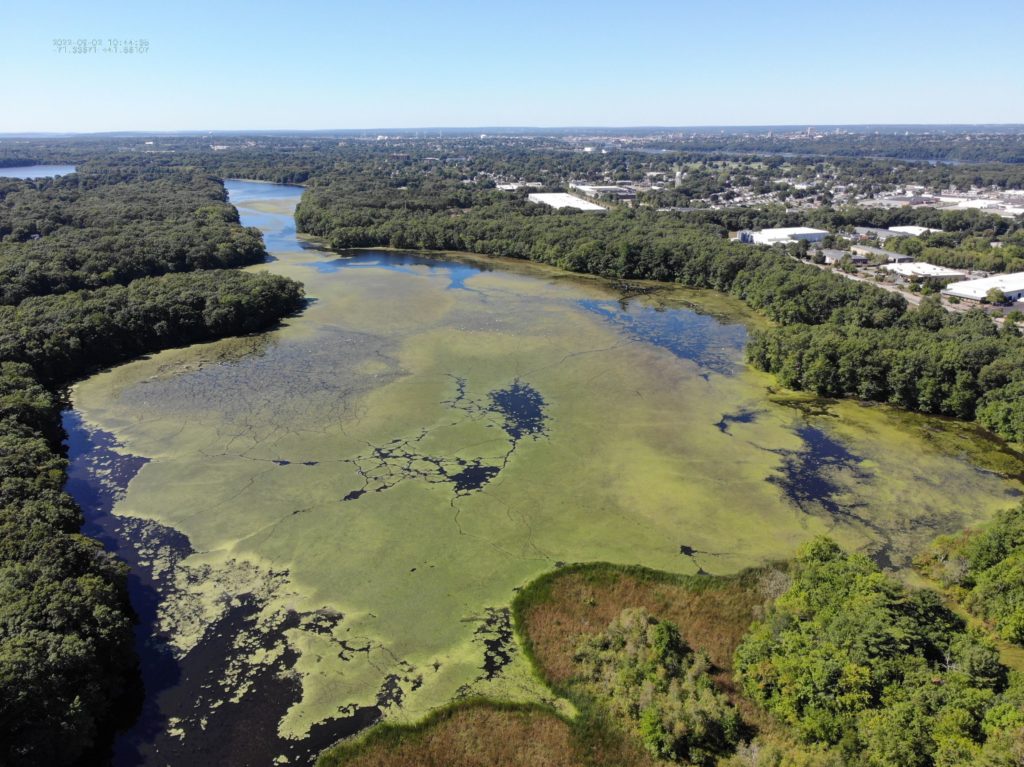The Southeast New England Program (SNEP) awarded NEIWPCC a $262,077 grant for habitat restoration efforts in two interstate watersheds. The project, Community-Based Habitat Restoration: Water Chestnut Management in the Blackstone and Ten Mile Watersheds, will launch in the spring of 2023. Both the Blackstone and Ten Mile watersheds are located in southeastern Massachusetts with sections in Rhode Island.

The project will empower local communities, including environmental justice areas, to tackle European water chestnut in urban ponds through a variety of means. Water chestnut (Trapa natans) is an aquatic invasive plant that overtakes slow-moving waterways, lakes and ponds and negatively impacts freshwater ecosystems. Water chestnuts form dense floating mats that deplete dissolved oxygen levels, shade out native plants, alter fish habitat and impede recreational activities such as swimming, fishing and boating. When left unmanaged, water chestnuts can grow exponentially, and seed beds can remain viable for up to twelve years – making a sustained, multi-year management effort a necessity.
“This project is exciting because we are aggressively tackling an invasive species through a variety of methods,” said Maryann Dugan, NEIWPCC environmental analyst and project manager. “Not only does this program include large-scale herbicide treatment of water chestnut, it also provides technical assistance and training to four municipalities about invasive species management.”
NEIWPCC will support volunteer events to train watershed associations to engage communities and eradicate pioneer infestations – a successful management strategy in other areas. Additionally, NEIWPCC will create materials to train other municipalities to collaboratively manage water chestnut.
“While it takes many years of consistent management to make a significant impact in reducing water chestnut, the local community is engaged and passionate about increasing the quality of their waterways for public use and wildlife,” said Dugan.
NEIWPCC’s project is one of 11 high-priority SNEP-funded projects throughout Southeast New England. The grants were awarded under the 2022 SNEP Watershed Implementation Grants (SWIG) program, a partnership between Restore America’s Estuaries, a national non-profit organization, and EPA Region 1.